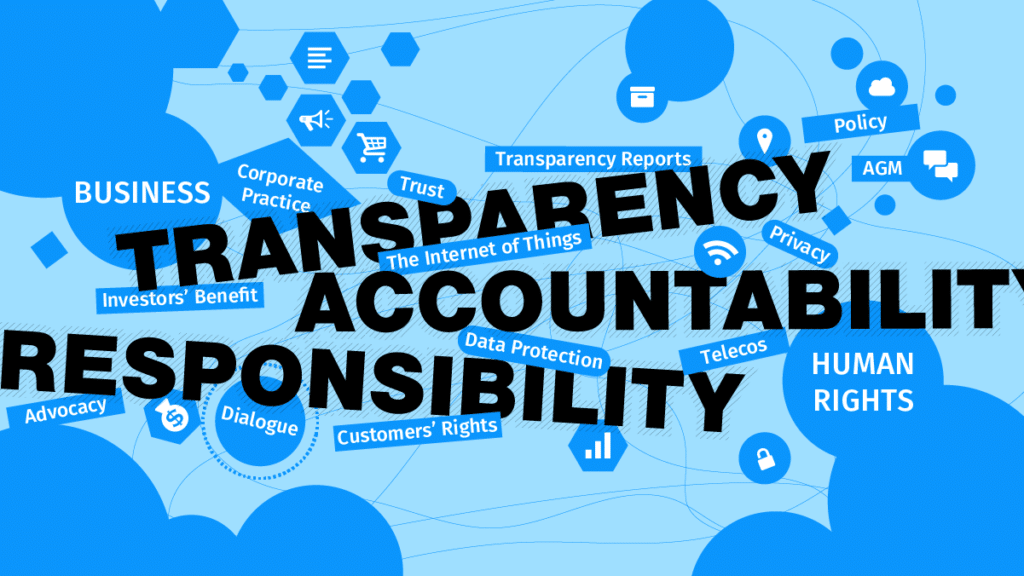UPDATE, March 15, 2022: The proposal on providing meaningful transparency reporting received substantial support from the Apple investors at the annual general meeting on March 4, winning 31.73% of the votes. Though the proposal did not pass, we are encouraged by the shareholder support for increased transparency on Apple reporting as we continue our engagement and outreach to Apple and to the company’s shareholders in 2022.
Ahead of Apple’s annual shareholder meeting on March 4, 2022, we are urging Apple shareholders to demand the company provide meaningful transparency on government censorship demands — all around the world. Here’s why every shareholder should vote yes on Shareholder Proposal 6.
Meaningful transparency matters for human rights
Ever since Google published the company’s first transparency report in 2010, it has become a tech sector norm for companies to report on government requests to hand over users’ data, remove content, or cut access to services. Today, over 70 tech companies release transparency reports. They are an essential tool for exposing government abuse and censorship, as well as an important resource to guide shareholders’ decision-making and support their human rights advocacy.
Robust transparency reporting entails providing information on a country-by-country basis and offering meaningful explanations regarding government requests. In most countries, the authorities do not publicly and proactively share this kind of information with citizens. That is why civil society members, journalists, and other external stakeholders depend on the tech sector to provide it. Transparency is not just telling the public that censorship has occurred – it is showing us what governments are censoring, which helps us determine why such content has been censored.
Apple says “People Come First.” But do they?
This brings us to Apple. Apple has been releasing transparency reports since 2013 and began providing information on app removal requests in 2018. In 2019, at the height of the pro-democracy protests in Hong Kong, Apple came under public scrutiny for its willingness to comply with censorship demands by oppressive governments. Specifically, Apple removed the Chinese version of the Quartz news app and the HKmap.live app from the App Store. This decision spurred 154 civil society organizations into action. They demanded the company take concrete steps to ensure that the “freedoms and safety of Apple users everywhere—including in Tibet, East Turkestan, Southern Mongolia, China, Hong Kong, and Taiwan—are upheld.” Meanwhile, a group of U.S. lawmakers wrote Apple’s CEO, Tim Cook, urging the company to reverse course on its censorship of at least 2,200 apps in China.
Apple has since published a Human Rights Policy boldly stating that “People Come First,” which makes a specific commitment to protect users’ freedom of expression. However, a review of Apple transparency reports from 2018 onward, focusing particularly on app removals in China, tells a different story. For instance, in 2020, Apple complied with every single app removal request from the Chinese government, with zero objections, while providing only vague reasons for doing so.
Apple is opposing the aforementioned shareholder proposal to increase transparency in the company’s reporting, stating that the “Matters of Note” sections in its transparency reports provide sufficient insight into the “types of content that governments in each country or region prohibit.” Apple also claims that through this information, readers can determine “whether the apps at issue relate to freedom of expression or access to information.” However, a look at the Matters of Note section in the reports for China reveals that the reasons Apple gives for removing apps in China since 2018 are wholly insufficient. For example, in the 2018 report, Apple simply states that the “vast majority relate to illegal gambling or pornography.” The report for the second half of 2020, meanwhile, says only that requests for removal were “predominantly related to apps with illegal content.”
These brief, vague, and ambiguous explanations do not provide insight as to the “types of content that governments in each country or region prohibit,” let alone enable anyone, including shareholders, to determine whether the apps at issue “related to freedom of expression or access to information,” as the company argues.
It’s time for shareholders to demand greater transparency
Transparency reporting is only worth the effort, time, and cost, if it provides information that is meaningful, and when appropriate, actionable. That is why we joined Azzad Asset Management ahead of Apple’s annual shareholder meeting on March 4, 2022 to support Shareholder Proposal 6. We want Apple’s Board of Directors to revise the company’s transparency reports to provide clear explanations regarding the number and categories of app removals from the App Store.
As members of the U.S. Congress told Apple in 2019, it is important the company demonstrates that it puts values above market access — not just say that it does. If you are an Apple shareholder, we ask you to vote FOR Proposal 6 to ensure Apple lives up to its public commitment to ensure “People Come First” — in China and everywhere else.
